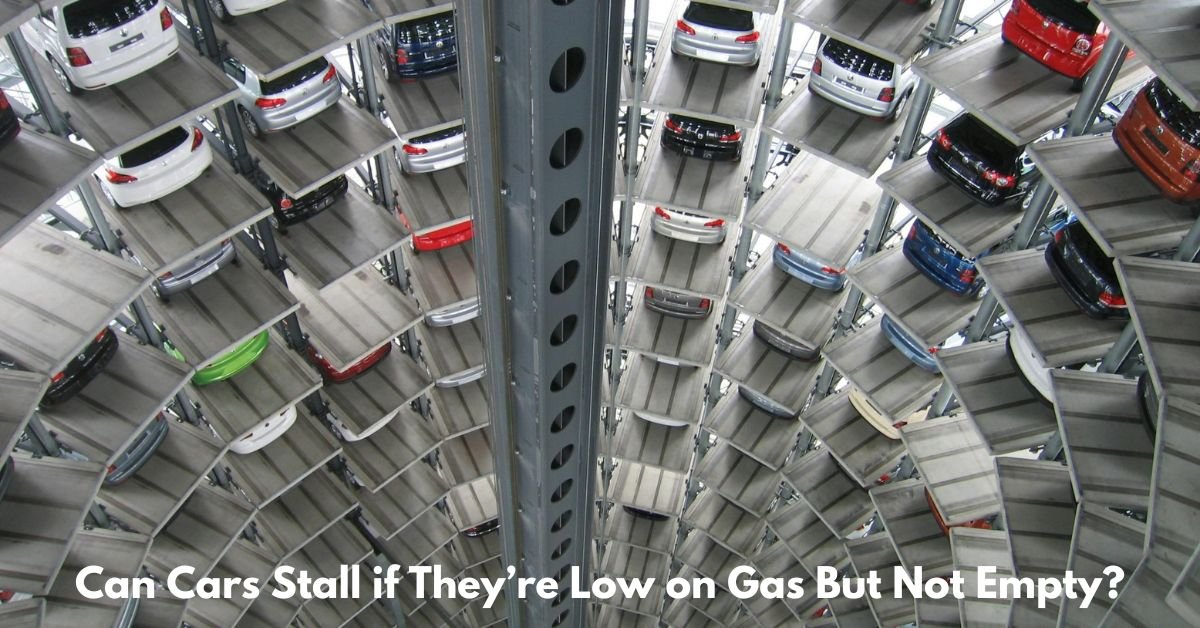When you’re driving, one of the most nerve-wracking experiences is seeing the gas gauge dip into the “low” range. We’ve all been there—hoping that your car will make it to the next gas station, or wondering if it’s safe to drive further without filling up. But one question that often comes up in these moments is, “Can my car stall if it’s low on gas, even if it’s not empty?”
The simple answer is, yes, a car can stall if it’s low on gas, even if it’s not completely empty. However, there’s more to this than just the fuel level. Let’s break it down and understand why this can happen, and how it affects your car’s performance.
Can Cars Stall if They’re Low on Gas But Not Empty?
1. How Gasoline Powers Your Car
First, let’s review the basic role of gasoline in your car’s engine. Gasoline is the fuel that powers the engine through combustion. Your car’s fuel system consists of a fuel tank, fuel pump, and fuel injectors, all working together to deliver the right amount of fuel to the engine.
When you drive, the fuel pump pulls gas from the tank and delivers it to the engine, where it’s mixed with air to create the combustion needed for the car to run. As you use up the gas, the level in the tank lowers, and the fuel pump continues to operate.
2. Why Cars Stall When Low on Gas
The reason a car can stall when low on gas is due to how the fuel system works. The following are the main causes of this:
- Fuel Pump Starvation
Modern vehicles use an electric fuel pump that’s usually submerged in the gas tank. This pump relies on the gas in the tank to keep it cool and lubricated. If the gas level is too low, the pump may begin to suck in air or even debris, causing it to overheat or malfunction. As a result, the car may stall because the engine is no longer receiving a consistent flow of fuel. - Sediment in the Tank
Gasoline isn’t always perfectly clean. Over time, sediments and debris can settle at the bottom of the tank. If you’re running low on fuel, there’s a higher chance that the fuel pump will draw in these particles, clogging the fuel filter and potentially causing the engine to stall. This is more common in older vehicles or those that have been running on near-empty tanks for extended periods. - Fuel Line Issues
The fuel line, which delivers fuel from the tank to the engine, can experience issues if the tank is low. The system may start to suck in air or experience irregular pressure, leading to problems with fuel delivery. This can lead to a stalling situation, especially if the car is idling or if you accelerate rapidly. - Fuel Inconsistent in the Tank
While not always the case, if the car is low on gas and you’re making sharp turns or going uphill, the fuel in the tank may shift away from the fuel pump. This could cause temporary interruptions in fuel flow, and in some cases, it might cause the engine to stall.
Must Read: Do All 2024 Cars Have Stop-Start System?

3. Will Your Car Stall Every Time It’s Low on Gas?
It’s important to note that just because your car is low on gas doesn’t mean it will always stall. Many cars are designed to handle running on low fuel without problems. For example, if you have a quarter tank left, your car might still run just fine, especially if the fuel system is in good condition and your driving habits don’t cause the fuel to shift excessively.
However, running on low gas over an extended period is never a good idea. Constantly pushing your car to run on fumes can lead to long-term damage to the fuel pump and other components. Over time, this can result in more frequent stalling and costly repairs.
4. What To Do If You’re Low on Gas and Concerned About Stalling
If you find yourself running low on gas and you’re concerned about stalling, the best course of action is to find a gas station and fill up as soon as possible. Even if you think you have a little gas left, it’s always better to err on the side of caution.
If you notice that your car has been stalling regularly, even when the gas tank is not close to empty, it might be a sign of a bigger issue. Your fuel pump, fuel filter, or fuel injectors could be malfunctioning, and it’s a good idea to get your vehicle checked out by a mechanic.
Final Thoughts
To wrap up, yes, a car can stall if it’s low on gas, even if it’s not completely empty. The risks of stalling increase as the fuel level decreases, and there are a variety of reasons why this can happen, from fuel pump issues to sediment buildup in the tank. To avoid stalling, it’s best to keep your gas tank at least a quarter full whenever possible.
Running low on fuel can be an inconvenience, but it can also be a sign that it’s time to take better care of your car’s fuel system. By staying ahead of potential problems and filling up when your gas gauge is getting low, you’ll ensure that your car continues to run smoothly and reliably for many miles to come.
